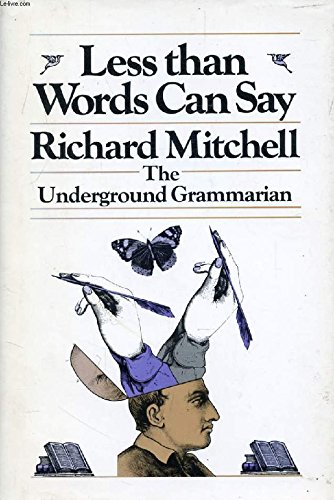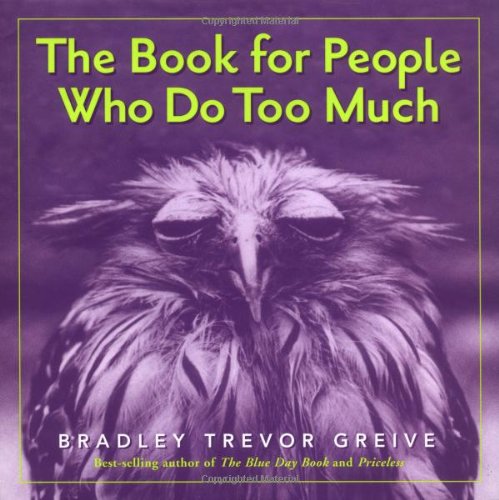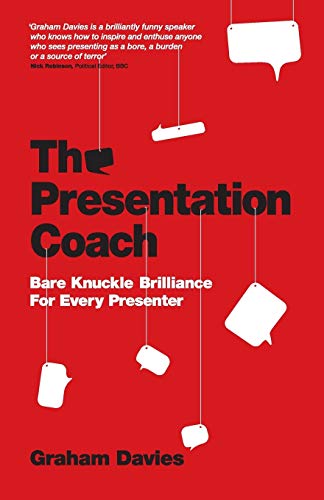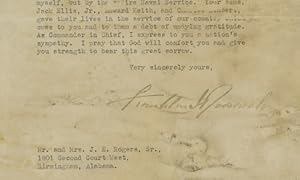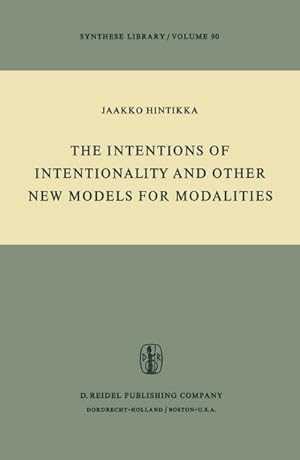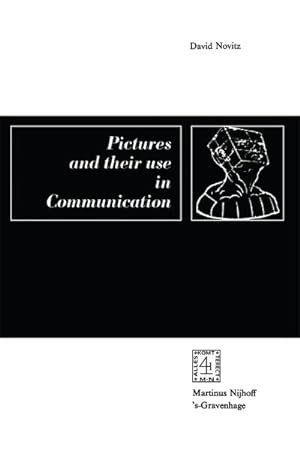less than words can say (104 Ergebnisse)
Produktart
- Alle Produktarten
- Bücher (93)
- Magazine & Zeitschriften
- Comics
- Noten
- Kunst, Grafik & Poster
- Fotografien
- Karten
-
Manuskripte &
Papierantiquitäten (11)
Zustand
Einband
Weitere Eigenschaften
Gratisversand
Land des Verkäufers
Verkäuferbewertung
-
Less Than Words Can Say
Verlag: Little Brown & Company, 1981
ISBN 10: 0316575070ISBN 13: 9780316575072
Anbieter: Better World Books, Mishawaka, IN, USA
Buch
Zustand: Good. First Paper. Former library book; may include library markings. Used book that is in clean, average condition without any missing pages.
Mehr Angebote von anderen Verkäufern bei ZVAB
Gebraucht ab EUR 6,38
-
Less Than Words Can Say
Verlag: Little Brown & Company, 1981
ISBN 10: 0316575062ISBN 13: 9780316575065
Anbieter: Better World Books, Mishawaka, IN, USA
Buch Erstausgabe
Zustand: Good. 1st. Used book that is in clean, average condition without any missing pages.
-
Where the Locals Go: More Than 300 Places Around the World to Eat, Play, Shop, Celebrate, and Relax
Verlag: National Geographic Society, United States, 2014
ISBN 10: 1426211945ISBN 13: 9781426211942
Anbieter: WorldofBooks, Goring-By-Sea, WS, Vereinigtes Königreich
Buch
Paperback. Zustand: Very Good. For many, the joy of travel is often an authentic, immersive experience of the local culture. Here, National Geographic's insider tips offer a unique look at the places and activities around the world that captivate the residents--from regional festivals, undiscovered local restaurants, and lesser-known art galleries, to quiet places to sit and watch another world stroll by. A bonus chapter features in-depth experiences in the top 15 greatest cities. This book goes beyond Internet basics to ensure rewarding and memorable travel for those who crave a deeper understanding of a country and its people. When in Rome, they say, do as the Romans do. Discover the soul of a place through a chance encounter, a kind word, or an unparalleled tip from a local. In Where the Locals Go, you'll find hundreds of authentic, beautifully photographed travel experiences, complemented with nuggets of entertaining and insightful text informed by locals. Now, you, too, can join the locals in Venice on their evening passeggiata; mingle with the crowds at sunset on Juhu Beach in Mumbai; sample some of France's best cheeses in the Alpine town of Annecy; and walk the ancient peak-to-peak pilgrimage on Japan's Kunisaki Peninsula. This book will inspire you to make your next trip a truly authentic travel experience. The book has been read, but is in excellent condition. Pages are intact and not marred by notes or highlighting. The spine remains undamaged.
-
The Book for People Who Do Too Much
Verlag: Andrews McMeel Publishing, United States, Kansas City, 2004
ISBN 10: 0740747002ISBN 13: 9780740747007
Anbieter: WorldofBooks, Goring-By-Sea, WS, Vereinigtes Königreich
Buch
Paperback. Zustand: Very Good. Hard work never killed anybody. But Bradley Trevor Greive (BTG) wants us to know when enough's enough! Funny and perceptive, The Book for People Who Do Too Much reminds us that, in fact, hard work has killed a whole bunch of people. It has also caused premature aging, unsightly baldness, and explosive indigestion and is responsible for a lot of very questionable fashion statements. Too many people drive themselves beyond reasonable limits to do more, have more, and be more. BTG points out that, ironically, they actually end up with a lot less. It's like climbing mountain after mountain and never taking the time to look at the view, he says. With his trademark combination of engaging animal photos, gentle humor, and priceless insights, BTG urges us to have the courage to say No, and to learn to use this liberating two-letter word in a way that is amusing and empowering and won't offend. Saying no can sound selfish, but by saving time to enjoy our lives and pursue our true passions, we'll ultimately have a lot more of ourselves to share with those who are most special to us. New York Times best-selling author Bradley Trevor Greive, creator of the modern classic The Blue Day Book, is now a household name in more than 30 countries. His seven previous books have won awards throughout the globe, with eight million copies sold worldwide. The book has been read, but is in excellent condition. Pages are intact and not marred by notes or highlighting. The spine remains undamaged.
-
Vendetta (Rio Way Thriller)
Verlag: Hodder & Stoughton, United Kingdom, 2014
ISBN 10: 1444789430ISBN 13: 9781444789430
Anbieter: WorldofBooks, Goring-By-Sea, WS, Vereinigtes Königreich
Buch
Paperback. Zustand: Very Good. FROM THE BESTSELLING AND CRITICALLY-ACCLAIMED AUTHOR OF SPARE ROOM, GANGLAND GIRLS TRLIOGY and the FLESH AND BLOOD SERIES Dreda Say Mitchell was awarded an MBE in Her Majesty The Queen's 2020 New Year's Honours List 'Dreda Say Mitchell has been flying the flag for crime writing for years' BERNARDINE EVARISTO, author of Girl, Woman, Other, winner of the Booker Prize 2019 'Breathless from the first word and thrilling to the last' Lee Child Two murders. Two different crime scenes. One killer? Mac wakes in a smashed-up hotel room with no recollection of what has happened. With his lover's corpse in the bathroom and the evidence suggesting that he killed her, Mac is on a mission to uncover the truth and find the real killer. But he's in a race against time with less than a day to unravel the mystery. Still reeling from a personal tragedy Mac isn't afraid of pain. Hot on his heels is tenacious Detective Inspector Rio Wray. Double-crossed and in the line of fire, Mac has to swim through a sea of lies to get to the truth. But only Mac knows he's been living a double life. Can he be sure he doesn't have the blood of a dead woman on his hands? Praise for Dreda Say Mitchell: 'Fast-paced, gritty and relentlessly violent expedition into the shadowy world of an undercover operative' Irish Independent 'Awesome tale from a talented writer' Sun 'Fast-paced and full of twists and turns.' Crime Scene Magazine 'Thrilling' Sunday Express Books of the Year ********* GET THE NEXT BOOK IN THE SERIES, DEATH TRAP, NOW! The book has been read, but is in excellent condition. Pages are intact and not marred by notes or highlighting. The spine remains undamaged.
-
The Presentation Coach - Bare Knuckle Brilliance for Every Presenter
Verlag: Capstone, 2010
ISBN 10: 085708044XISBN 13: 9780857080448
Anbieter: Hamelyn, Madrid, Spanien
Buch
Zustand: Muy bueno. You probably hate giving presentations. You probably hate listening to them too. Why? Because most business presentations are too long, too detailed, too boring.and submerged under a blizzard of PowerPoint. But the single most important presentational tool known to man isn't a slideshow. It's you. Whether you're speaking to one person across a table, 20 people in a boardroom or 1,000 people in a ballroom, it's all about the words you say and how you say them. The Presentation Coach shows you how to use what you've already got to give you clarity, confidence and impact in every speaking challenge you will ever face. You'll learn the unique Bare Knuckle 5-step process to effective presenting, and how to apply it to all business speaking, from large-scale presentations to one-to-one client meetings. Graham Davies has been coaching high-profile individuals from the worlds of business, politics and entertainment in exactly these techniques for the past 25 years. Now it's your turn. Praise for The Presentation Coach "Graham Davies is a brilliantly funny speaker who knows how to inspire and enthuse anyone who sees presenting as a bore, a burden or a source of terror." Nick Robinson, Political Editor, BBC "This book really captures Graham's intense and robust sense of coaching. Just like the author, it is amusing, punchy and really comforting to have access to in all presentation situations." Michel Combes, CEO,Vodafone Europe "Required reading for anyone who wants their presentations to enthuse rather than euthanize their audience." Tim Curtis, MD, Northern Europe, Land's End "Graham is a highly effective presentation coach. He is always honest and gets straight to the point. His book is just as direct and entertaining as he is in person." Nick Jeffery, CEO, Vodafone Global Enterprise "I don't know anyone who could wear the label 'the presentation coach' more confidently than Graham." Daniel Finkelstein, Executive Editor, The Times "I use Graham's system strictly and religiously in every speech. In fact on almost every important occasion when I need to get a message across. You will never regret buying and using this book." George Clarke, MD, Heidelberg UK "Graham helped me develop my very own presentation style, true to myself, with high impact and focused very much on the audience." Phil Clarke, CEO Designate, Tesco "Graham's approach is ruthlessly robust and utterly practical. This book is the next best thing to seeing him in person, and much less of a strain on your budget." Matthew Wilson, CEO Brit Global Markets ".Davies's compelling book illuminates all the pitfalls and provides a simple guide to allowing personality into presentations - radical stuff indeed!" Andy Street, MD, John Lewis "Whether you are a Prime Minister, chief executive or anyone else who needs make an impact, then you must read this challenging and innovative book by Graham Davies." Neil Sherlock, Partner, Public Affairs, KPMG ".I wish Graham had written it 20 years ago." Richard Klein, MD, Bank of America Merrill Lynch "Never again will you commit the crime of Death by Bullet-Point." Penny Philpot, Group Vice President, Worldwide Partner Services, Oracle "Graham Davis is a talented gagmeister who shows that the best way of exposing a bad argument is with a good joke." Boris Johnson, Mayor of London "Reading his book will spur you on to win your own presentational race." Richard Dunwoody, twice winner of the Grand National "Graham completely reframed my approach to presenting. His approach works!" Otto Thoresen, CEO, Aegon UK "A process that you can use no matter what the situation. I heartily recommend it." Michael Gove MP "This book is not a coaching guide for the faint-hearted. Prepare to be beaten into being bloody brilliant!" Francis Edmonds, broadcaster, author and professional speakerEAN: 9780857080448 Tipo: Libros Categoría: Título: The Presentation Coach - Bare Knuckle Brilliance for Every PresenterAutor: G Davies Editorial: John Wiley and Sons Ltd, United Kingdom, Oxford Peso: 345.
-
His words are readily reminiscent of those Abraham Lincoln wrote to Mrs. Bixby, who lost five sons in the Civil War?The Rogers brothers?s deaths, and those of the Sullivan brothers, led to the adoption of a rule that no longer permitted family members to serve with each other in combat areasAmong the literary masterpieces of Abraham Lincoln, states William Springer in his work ?Tributes to Abraham Lincoln?, are his melancholy Springfield Farewell Speech, his Second Inaugural Address, and the famous letter to Mrs. Lydia Bixby, a Boston widow who had lost five of her sons in the Civil War. The latter letter reads, ?Executive Mansion, Nov. 21, 1864. Dear Madam: I have been shown in the files of the War Department a statement of the Adjutant-General of Massachusetts that you are the mother of five sons who have died gloriously on the field of battle. I feel how weak and fruitless must be any words of mine which should attempt to beguile you from the grief of a loss so overwhelming. But I cannot refrain from tendering to you the consolation that may be found in the thanks of the republic they died to save. I pray that our heavenly Father may assuage the anguish of your bereavement, and leave you only the cherished memory of the loved and lost, and the solemn pride that must be yours to have laid so costly a sacrifice upon the altar of freedom. Yours very sincerely and respectfully ? Abraham Lincoln.?That was 1864. Now for 1942. Jack Ellis Rogers Jr., Charles Ethbert Rogers, and Edward Keith Rogers were killed in action aboard the USS New Orleans during the Battle of Tassafaronga off Guadalcanal in the Solomon Islands on November 30, 1942. In that battle, one American ship was sunk, three badly damaged, and almost 400 men killed. The news reached President Roosevelt soon after, and he determined to put aside his duties of the day to reach out to the Rogers family to express his personal condolences, as Lincoln had to Mrs. Bixby.This is the now famous letter FDR wrote the Rogers boys? parents. Typed Letter Signed, on White House letterhead, Washington, January 4, 1943, to Mr. and Mrs. J. E. Rogers. "I have just been advised of your loss of three sons who gave their lives in the performance of their duty in action against the enemy. There is little that I can say to lessen the burden of your grief. However, I want you to know that your great sorrow is shared not only by myself, but by the entire Naval Service. Your sons, Jack Ellis, Jr., Edward Keith, and Charles Ethbert, gave their lives in the service of our country which owes to you and them a debt of undying gratitude. As Commander in Chief, I express to you a nation''s sympathy. I pray that God will comfort you and give you strength to bear this great sorrow. Very sincerely yours ? Franklin D. Roosevelt.? Though time has led to some loss of text, since the letter is well known and published, the full text is readily available.Springer rightly sees a comparison between the two letters, as that comparison readily came to our minds even prior to seeing his book. Springer praises Lincoln?s masterful language, then says, ??both letters are great in their own way, and that never before nor since Lincoln's time, has anyone been able to emulate his extraordinary literary ability. As a matter of fact, Rogers letter in some respects seems to bear considerable likeness to the Bixby letter.?This letter of Roosevelt, and the one he wrote to the Sullivan family whose five sons were killed when their ship went down, also in the Guadalcanal campaign, are the two great servicemen?s condolence letters FDR wrote during World War II. It is a privilege to carry this one.The Navy named the destroyer the USS Rogers (DD-876) after the three Rogers brothers. If was launched in 1945, served during World War II, and was decommissioned in 1980. The Navy named two destroyers after the Sullivans to honor those brothers: The USS The Sullivans (DD-537) and USS The Sullivans (DDG-68). DD-537 was the first American Navy ship ever named in plural after more than one person. Wikipedia states that the deaths of both the Sullivan and Rogers brothers led to the adoption of a rule that no longer permitted family members to serve with each other in combat areas.
-
Merriam-Webster's Collegiate Dictionary. The Words You Need Today. America's Best-selling Dictionary.
Verlag: Springfield / Massachusetts, Merriam-Webster., 2003
ISBN 10: 0877798079ISBN 13: 9780877798071
Anbieter: Fundus-Online GbR Borkert Schwarz Zerfaß, Berlin, Deutschland
Buch
Hardcover with dustjacket. Zustand: Sehr gut. Eleventh Edition. 1622 p., with fig., Very good condition. -- Preface: When Webster's Collegiate Dictionary was first published, the year was 1898, and Americans were being exhorted to "remember the Maine." As the eleventh consecutive edition of this standard reference book appears, we have crossed the nearly inconceivable divide between the second and third millennia of the modem era, but since daily lives can scarcely be led in constant awareness of a span of time that vast, we now situate ourselves, for the most part, in the first decade of the twenty-first century. Over the time between these editions, the world has made its way through two global wars and many others of a more limited kind; wide-ranging social, political, and economic change (not to say, revolution); and successive waves of technological change that have transformed communication, transportation, information storage and retrieval, and great numbers of other human activities. At every turn these events and developments have had a major effect on the stock of words that English speakers use, and it has been the job of a good general dictionary to record these changes. The present book is the latest effort by the editorial team of Merriam-Webster to meet that responsibility. -- Merriam-Webster's Collegiate Dictionary, Eleventh Edition, like all earlier editions is meant to serve the general public as its chief source of information about the words of our language. Its title may suggest a special appropriateness for the older student, but those who work in offices and those who read, think, and write at home will equally find it a trustworthy guide to the English of our day. -- The ever-expanding vocabulary of our language exerts inexorable pressure on the contents of any dictionary. Words and senses are bom at a far greater rate than that at which they die out. The 1664 pages of this Collegiate make it the most comprehensive ever published. And its treatment of words is as nearly exhaustive as the compass of an abridged work permits. As in all Merriam-Webster dictionaries, the information given is based on the collection of 15,700,000 citations maintained in the offices of this company. These citations show words used in a wide range of printed sources, and the collection is constantly being augmented through the efforts of the editorial staff. Thus, the user of the dictionary may be confident that entries in the Collegiate are based on current as well as older material. The citation files hold 5,700,000 more examples than were available to the editors of Webster's Third New International Dictionary, published in 1961, and 1,200,000 more than the editors of the Tenth Edition had at their disposal. The editors of this edition also had available to them a machine-readable corpus of over 76,000,000 words of text drawn from the wide and constantly changing range of publications that supply the paper slips in the citation files. It is now nearly four times the size of the corpus used by the editors of the Tenth Edition. -- Those entries known to be trademarks or service marks are so labeled and are treated in accordance with a formula approved by the United States Trademark Association. No entry in this dictionary, however, should be regarded as affecting the validity of any trademark or service mark. -- The best features of the vocabulary section in the last edition have been retained, reviewed, and improved for this one. Additional pictorial illustrations are present, and many of them were drawn especially for this book in order to supplement and clarify definitions. Synonym paragraphs and usage paragraphs are both here again, augmented in number. The dates of first use provided at most main entries have proved to be very popular with users of the Collegiate. For the Eleventh Edition, thousands of these dates have been pushed back in time, anywhere from a single year to several centuries from published materials (both print and electronic) not available ten years ago, i from the continuing investigations of our own editors, and from the contributions of hundreds of interested readers. Two important changes in the treatment of the vocabulary have been made for this edition, one to provide additional information and the other to make information easier to find. All standard variants are now shown at the relevant main entry so that the reader may see at a glance whether they are equal variants with the main entry or are distinctly less frequent. And entries for abbreviations as well as for the symbols for chemical elements are now quickly found in the vocabulary section and need not be sought in a separate section tucked away in the back matter, as in the previous edition. -- The front matter of this book establishes a context for understanding what this dictionary is and how it came to be, as well as how it may be used most effectively. The Explanatory Notes address themselves to the latter topic. They answer the user's questions about the conventions, devices, and techniques by which the editors have been able to compress mountains of information about English words into so few pages. All users of the dictionary are urged to read this section through and then consult it for special information as they need to. The brief essay on our language as it is recorded in Merriam-Webster dictionaries, and this Collegiate in particular, is meant to satisfy an interest in lexicography often expressed in the correspondence which our editors receive. The Guide to Pronunciation serves both to show how the pronunciations in this book are arrived at and to explain the mechanics of the re- spelling system in which they are set down. -- The back matter retains five sections from the last edition of the Collegiate. These are Foreign Words and Phrases that occur frequently in English texts but have not become part of the English vocabulary; thousands of proper names brought together under the separate headings Biographical Names and Geographical Names; a gather.
-
All That Glisters .: And Other Quotations You Should Know
Verlag: Michael O'mara Books Ltd, 2019
ISBN 10: 1782439978ISBN 13: 9781782439974
Anbieter: Rheinberg-Buch Andreas Meier eK, Bergisch Gladbach, Deutschland
Buch
hardcover. Zustand: Gebraucht. Gebraucht - Sehr gut Leichte Lagerspuren -Quotations - or snippets from them - are commonly used in everyday speech, most often without the speaker knowing where they came from. From words of comfort to advice for the lovelorn, you can bet that someone, somewhere has come up with phraseology that perfectly sums up whatever situation you find yourself in - and put it more succinctly than you could ever dream of.In All That Glisters . Caroline Taggart presents some of the pithiest, wisest and most fascinating quotations we should all know, detailing where the quotation has come from and why it may be useful when searching for an elegant or informed line to illustrate a point, spice up conversation or impress one's friends.Part of the pleasure of this book is to reveal the provenance of the well-worn quote (or misquote) - my cup runneth over, ay, there's the rub, to err is human, the spice of life - but also to introduce some less familiar ones. Most of the quotations included are from classic sources - from the Bible, the works of Shakespeare, other poets, classical authors, Dickens (God bless us everyone, waiting for something to turn up, very humble), Charlotte Bronte (Reader, I married him) and George Bernard Shaw (who didn't actually say Youth is wasted on the young, but may have said something like it. Somewhere. No one seems to know for sure).This entertaining and informed - but not too serious - take on the wit and wisdom of the last 2000 years is ideal for modern readers who like their knowledge in tweet-sized chunks. 192 pp. Englisch.
Mehr Angebote von anderen Verkäufern bei ZVAB
Neu ab EUR 11,24
Gebraucht ab EUR 8,95
Mehr entdecken Hardcover
-
STEPHEN POTTER ARCHIVE: 1964-1968 CORRESPONDENCE WITH JON WYNNE-TYSON + TYPED & HAND-WRITTEN MANUSCRIPT OF 'OMNIANA' INTRODUCTION, BY STEPHEN POTTER. COMPRISES TWENTY TYPED & HAND-WRITTEN LETTERS PLUS FOUR POSTCARDS. IN EXCESS OF 5,000 WORDS.
Verlag: London,, 1964
Anbieter: Burwood Books, Wickham Market, Vereinigtes Königreich
Verbandsmitglied: PBFA
Signiert
Paperback. Zustand: Very Good. CORRESPONDENCE: Spirited dialogue between Stephen Potter & Jon Wyne-Tyson concerning Stephen Potter's commission to write an Introduction to the Centaur Press edition of 'Omniana' by Robert Southey. However, in 1967 the commission transferred to Robert Gittings and Potter's version remained unused; the letters reveal why. Wynne-Tyson's increasing frustration with the non-appearance of Potter's work is apparent: 5th September, 1966 "The situation with regard to this wretched work gets less and less satisfactory.after two solid years or more I still haven't got an Introduction from you, short or long, good or bad." concluding damningly "Do you indeed exist, Mr. Potter, for I have little evidence for the assumption." TIMELINE: The collection of correspondence began in December 1964 in a straightforward formal but lively fashion with "Dear Mr. Potter, Thank you very much for the kinky blurb. I'm not really much of a modern, but I think that's the word." A business-like discussion of the 1812 edition of 'Omniana' follows, with typed letters in 1965 on Centaur Press headed paper, laying out guidelines for an Introduction for the new edition, with mention of Coleridge's footnotes. Cracks appear by May 1966 when notes from Jon Wynne-Tyson to Stephen Potter begin to put pressure on and display exasperation "I keep announcing the book each year and booksellers are getting tetchy." A softer approach is also tried: "why not do a shorter piece within next few weeks? Say 2000-3000 words for the usual £25 rather than something which is going to tax your time and thought?" Replies came rather like trying to catch butterflies: short notes on post cards "I will write to you on Sunday next and explain" followed by "Please give me another day or two before writing" The situation has deteriorated further by April1967, & ultimatums are despairingly issued: "As you have already made it clear in best bookmanship manner that our usual fee, although good enough for some of the highest paid scholars in the country, is peanuts for S.P., I shall quite understand if you would rather forget about the whole thing." Mysteriously, in May 1967 "Among the stuff you gave me I have found the enclosed, which has all the aspects of an Introduction. Am I being the victim of super-gamesmanship? Is the implication that Potter pens prefaces in his sleep.?" By return, from the Saville Club, Brook Street "Omniana Intro. I had quite forgotten I had started it: though I remember doing a chunk of reading for it." The whole saga ends amicably shortly afterwards: Potter's unfinished Introduction needed yet more work & Robert Gitting "had your blessing before coming across the typescript, so I'd hate to disappoint him." The correspondence concludes with a short to & fro on a different subject: the idea Jon Wynne-Tyson might be interested in purchasing books from Stephen Potter's collection "What about the great Potter classic the Muse in Chains, never reprinted since the War.(Or Mrs. Coleridge's letters?)" LETTERS: Typed Wynne-Tyson letters frequently re-use the reverse of old letters eg. from Punch Publications, to photocopy letters for the record; these are included in the dialogue. The correspondence is a window on the working practice of author and publisher; the professional relationship of trust and respect; and the display of strong of personalities which ensues. Stephen Potter's hand-written letters have a rather scatty and optimistic style "My friend, Southey is beginning to get us down.* Don't let this spoil a pleasant prospective friendship." Jon Wynne-Tyson's typed, professional, & encouraging letters which become thoroughly fraught,"for pity's sake bring the matter conclusively to an end one way or the other, as I have but one life, one pair of hands, and one unduplicated set of nerves that already resemble a wire brush." THE LONDON LIBRARY: There is also an amusing glimpse into a lost world of letters & libraries: J.W-T to SP: "The Librarian of the London Library has written to me in red ink to say that he has still not received the Southey Omniana. This is his fourth or fifth request and he is really getting agitated." The reply came "my sec. Miss Strong took it back. She confirms: Weeks ago. This has happened to me before- something wrong with their checking system." The plot thickened with a formal reply from the London Library stating the volumes had not been found, & they were looking to charge the the account of Mr. Wynne-Tyson, whose response was: "perhaps your previous experience with Mr. Potter will suggest whether the books are likely to turn up in due course." INCLUDED: Potter's' elusive Introduction to Omniana.' Six typed & twelve hand-written pages. / One printed page 'Omniana: Robert Southey and S.T.Coleridge; Introduced by Stephen Potter.' / An 'Appendix: Some Thoughts on the Principles of Anti-Woo as Observed in the Behaviour of Literary Men' by Howard Cogg-Willoughby. Two typed pages. STEPHEN MEREDITH POTTER(1900Ð1969) was a British author best known for his parodies of self-help books; & their film & television derivatives. Following WW1 Potter studied English at Oxford, and after some false starts spent his early working life as an academic, lecturing in English literature at Birkbeck College, University of London, during which time he published several works on Samuel Taylor Coleridge Driven to find a more comfortable income & lifestyle, he took up a post producing and writing for the BBC, later becoming a freelance writer. Commercial success & recognition came with a series of humorous books on how to secure an unfair advantage. In 1947 'Gamesmanship' (alluded to in the correspondence) aims to show how poor players can beat better ones by subtle psychological ploys. In 1927 Potter married Marian Anderson Attenborough (1900Ð1981), a painter professionally known as Mary Potter. In 1951 Potter and his wife moved to Suffolk, to the Red House in Aldeburgh, becoming friends with Benjamin Britten & Peter Pears, Signedes.
-
Fourth Wing (2023): Discover TikTok's newest fantasy romance obsession with this BBC Radio 2 Book Club Pick! (The Empyrean, 1)
Verlag: Little, Brown Book Group, 2023
ISBN 10: 0349437009ISBN 13: 9780349437002
Anbieter: Rheinberg-Buch Andreas Meier eK, Bergisch Gladbach, Deutschland
Buch
paperback. Zustand: Gebraucht. Gebraucht - Sehr gut Leichte Lagerspuren - Don't miss out on the series that everyone can't stop talking about! 'Pure escapism - think Hunger Games meets Fifty Shades' -The Sun 'We weren't expecting to become obsessed with Rebecca Yarros's Fourth Wing, but we very much are - and we're not alone . . .' -Sunday Times Style'I couldn't put it down!' -Millie Bobby Brown'This book contains an addictive, drug like essence that will make you relinquish all responsibility until the very last word. Do not say I didn't warn you' -Glamour 'Yarros had me hooked from the first chapter' -Mail on Sunday__________________________________________ Welcome to the brutal and elite world of Basgiath War College . . . Twenty-year-old Violet Sorrengail was supposed to enter the Scribe Quadrant, living a quiet life among books and history. Now, the commanding general - also known as her tough-as-talons mother - has ordered Violet to join the hundreds of candidates striving to become the elite of Navarre: dragon riders. But when you're smaller than everyone else and your body is brittle, death is only a heartbeat away . . . because dragons don't bond to 'fragile' humans. They incinerate them. With fewer dragons willing to bond than cadets, most would kill Violet to better their own chances of success. The rest would kill her just for being her mother's daughter - like Xaden Riorson, the most powerful and ruthless wingleader in the Riders Quadrant. She'll need every edge her wits can give her just to see the next sunrise. Yet, with every day that passes, the war outside grows more deadly, the kingdom's protective wards are failing, and the death toll continues to rise. Even worse, Violet begins to suspect leadership is hiding a terrible secret.Everyone at Basgiath has an agenda, and every night could be your last. So, sleep with one eye open because once you enter, there are only two ways out: graduate or die.__________________________________________ OVER A QUARTER OF A MILLION READERS HAVE ALREADY GIVEN FOURTH WING FIVE STARS. ARE YOU READY TO ENTER THE WORLD OF BASGIATH WAR COLLEGE 'If I can convince you to read one book I recommend it would be this one' 'I didn't sleep, I didn't eat, and when I finished, I had the overwhelming urge to just start it all over again' 'This book is probably the best fantasy book I have ever read' 'FIVE. FREAKING. STARS. There is no universe where I could give this book any less of a rating' 'There are some stories you read and enjoy but every so often you come across one that just obliterates everything and takes over your entire being within a few pages and becomes your world and personality. Well, this is the one''The world building in this was phenomenal. I lived, breathed and became a part of the college''You know when you finish a book, and it leaves an ache in your chest because it was so good, and now it's over That's exactly how I feel after finishing Fourth Wing' & 512 pp. Englisch.
Mehr Angebote von anderen Verkäufern bei ZVAB
Neu ab EUR 20,34
Gebraucht ab EUR 10,65
Mehr entdecken Softcover
-
The Big Aqua Book of Beginner Books
Verlag: Random House LLC US Sep 2017, 2017
ISBN 10: 1524764426ISBN 13: 9781524764425
Anbieter: AHA-BUCH GmbH, Einbeck, Deutschland
Buch
Buch. Zustand: Neu. Cummings, Art; Lopshire, Robert (illustrator). Neuware - Six classic Beginner Books including four by Dr. Seuss for less than the price of two individual Beginner Books!This collection of six Beginner Books bound together in one sturdy hardcover is the perfect gift at a fantastic price! The Big Aqua Book of Beginner Books includes the complete text and illustrations for: Dr. Seuss s The Cat in the Hat Comes Back Dr. Seuss s There s a Wocket in My Pocket! Dr. Seuss s Oh Say Can You Say Dr. Seuss s Please Try to Remember the First of Octember! (illustrated by Art Cummings) Robert Lopshire s New Tricks I Can Do! Al Perkins s Hand, Hand, Fingers, Thumb (illustrated by Eric Gurney)Beginner Books are fun, funny, and easy to read! Launched by Dr. Seuss in 1957 with the publication of The Cat in the Hat, this beloved early reader series motivates children to read on their own by using simple words with illustrations that give clues to their meaning. Featuring a combination of kid appeal, supportive vocabulary, and bright, cheerful art, Beginner Books will encourage a love of reading in children ages 3 7.
-
Fine Autograph Letter Signed n French with translation to "My dear ESCUDIER" (Léo, 1836-1891, French Composer of Light Opera & Ballet, including 'Coppélia')
Anbieter: Sophie Dupre ABA ILAB PADA, Calne, Vereinigtes Königreich
Manuskript / Papierantiquität
(Léon, 1821-1881, Prominent French Journalist, Music Critic and Music Publisher) saying that he is "going to spend all Monday in the country - and I shall return on Tuesday afternoon bringing you the finished waltz - it is going well now. I shall also take the performer's scores, bring them back in the evening with the little traditional word I also ask you not to give out those of the conductors until I have written the above little word. Try, I beg you, to get Du Locie to announce this break very clearly. For a week all the posters have indicated last performances of Romeo, but there has been nothing for us. Besides, I much believe that it is only after the 20th that we shall stop. I want to take advantage of my leisure time tomorrow. by writing all the letters I owe, and especially those from Vienna; What can I say for certain to Mr Swoboda, as well as to Mr Janner - I so much want to reply to them in simple fashion, but I can't keep silent any longer - that would be less than polite.", 4 sides 8vo., no place, no date Camille du LOCLE (1832-1903) was a French Theatre Manager and Librettist.
-
The Intentions of Intentionality and Other New Models for Modalities
Verlag: Springer Netherlands, 1975
ISBN 10: 9027706344ISBN 13: 9789027706348
Anbieter: AHA-BUCH GmbH, Einbeck, Deutschland
Buch
Taschenbuch. Zustand: Neu. Druck auf Anfrage Neuware - Printed after ordering - The leisure to do the thinking whose results are gathered here has largely been provided by the Academy of Finland, whose support has also made possible the help and co-operation of a group of younger logicians and philosophers. Less tangible support and help is unfortunately harder to record and to thank for. Once again, in working on the many themes I have tried to weave together in this book I have incurred more intellectual and moral debts I can in so many words acknowledge here. Let me only say that the closer to home I get the greater they become. I have especially in mind my colleagues and students at Stanford; my colleagues in Helsinki; the past and present members of my research group in Helsinki; and incom parably more than anybody else my wife Soili. Helsinki, April 1975 JAAKKO HINTIKKA INTRODUCTION A literal-minded reader might easily object to the (sub)title of this volume. What is to be found here, he might allege, are neither models, nor modalities stricto sensu, nor yet any completely new applications of modal logic. Even though the purpose of the title is only to signal the con tinuity between the present volume and its predecessor, Models for Modalities (D. Reidel Publishing Co., Dordrecht, 1969), the objection is sufficiently well taken to serve as an excuse for an attempt to put my enterprise in a wider perspective.
-
The Prism of the Self : Philosophical Essays in Honor of Maurice Natanson
Verlag: Springer Netherlands, 2010
ISBN 10: 9048145708ISBN 13: 9789048145706
Anbieter: AHA-BUCH GmbH, Einbeck, Deutschland
Buch
Taschenbuch. Zustand: Neu. Druck auf Anfrage Neuware - Printed after ordering - This volume contains sOOeen essays written by his students and colleagues in honor of Maurice Natanson. The essays explore some of the diverse themes Professor Natanson has pursued through forty years of teaching and philosophizing in the tradition of existential phenomenology. Because it also includes a lengthy biographical and philosophical interview where one can find an absorbing account of Natanson's Lebens/au/in his own words, there is no need to detail that polypragmatic career here. Suffice to say that even passing acquaintance with the man and the work will reveal that Edmund Husserl's self-description holds equally of his distinguished interpreter: 'I seek not to instruct but only to lead, to point out and describe what I see. I claim no other right than that of speaking according to my best lights, principally before myself but in the same manner also before others, as one who has lived in all its seriousness the fate of a philosophical existence. 'l For Natanson, as the diversity of the contributions to this volume attest, such seriousness involves something other than that narrow technical vision for which a topic is the more philosophical the less it has to do with anything else. In Natanson's pages-to say nothing of his teaching and conversation-there are no men of straw but living, breathing human beings; with hirn philosophy's tentacles are ubiquitous.
-
The Prism of the Self : Philosophical Essays in Honor of Maurice Natanson
Verlag: Springer Netherlands, 1995
ISBN 10: 0792335465ISBN 13: 9780792335467
Anbieter: AHA-BUCH GmbH, Einbeck, Deutschland
Buch
Buch. Zustand: Neu. Druck auf Anfrage Neuware - Printed after ordering - This volume contains sOOeen essays written by his students and colleagues in honor of Maurice Natanson. The essays explore some of the diverse themes Professor Natanson has pursued through forty years of teaching and philosophizing in the tradition of existential phenomenology. Because it also includes a lengthy biographical and philosophical interview where one can find an absorbing account of Natanson's Lebens/au/in his own words, there is no need to detail that polypragmatic career here. Suffice to say that even passing acquaintance with the man and the work will reveal that Edmund Husserl's self-description holds equally of his distinguished interpreter: 'I seek not to instruct but only to lead, to point out and describe what I see. I claim no other right than that of speaking according to my best lights, principally before myself but in the same manner also before others, as one who has lived in all its seriousness the fate of a philosophical existence. 'l For Natanson, as the diversity of the contributions to this volume attest, such seriousness involves something other than that narrow technical vision for which a topic is the more philosophical the less it has to do with anything else. In Natanson's pages-to say nothing of his teaching and conversation-there are no men of straw but living, breathing human beings; with hirn philosophy's tentacles are ubiquitous.
-
Theoretical Physics and Philosophical Problems : Selected Writings
Verlag: Springer Netherlands, 1974
ISBN 10: 9027702500ISBN 13: 9789027702500
Anbieter: AHA-BUCH GmbH, Einbeck, Deutschland
Buch
Taschenbuch. Zustand: Neu. Druck auf Anfrage Neuware - Printed after ordering - l. The work of Ludwig Boltzmann (1844-1906) consists of two kinds of writings: in the first part of his active life he devoted himself entirely to problems of physics, while in the second part he tried to find a philosoph 1 ical background for his activities in and around the natural sciences. Most scientists are much more aware of his creative work in physics than of his digressions on the meaning and structure of science. I think in the present case the reason is not so much that most scientists are usually almost entirely occupied with their trade, because Boltzmann's philosophical work is also concerned with the (natural) sciences. I rather believe that the quality and consistency of Boltzmann's purely scientific work is of a more appealing nature than his less structured considerations on human activity in science and in life in general. 2. I think that it may be appropriate for the readers of this anthology to say a few words on the main findings of Boltzmann in physics, since in the end their 'philosophical' inlpact has been larger than the effect of his later writings. Moreover some knowledge of his scientific achievements can be helpful for the understanding and appreciation of the essays printed in this book, which almost all stem from Boltzmann's philosophical period. Boltzmann was one of the main protagonists - at least in continental Europe - of atomistics for explaining the phenomena of physics.
-
Theoretical Physics and Philosophical Problems : Selected Writings
Verlag: Springer Netherlands, 1974
ISBN 10: 9027702497ISBN 13: 9789027702494
Anbieter: AHA-BUCH GmbH, Einbeck, Deutschland
Buch
Buch. Zustand: Neu. Druck auf Anfrage Neuware - Printed after ordering - l. The work of Ludwig Boltzmann (1844-1906) consists of two kinds of writings: in the first part of his active life he devoted himself entirely to problems of physics, while in the second part he tried to find a philosoph 1 ical background for his activities in and around the natural sciences. Most scientists are much more aware of his creative work in physics than of his digressions on the meaning and structure of science. I think in the present case the reason is not so much that most scientists are usually almost entirely occupied with their trade, because Boltzmann's philosophical work is also concerned with the (natural) sciences. I rather believe that the quality and consistency of Boltzmann's purely scientific work is of a more appealing nature than his less structured considerations on human activity in science and in life in general. 2. I think that it may be appropriate for the readers of this anthology to say a few words on the main findings of Boltzmann in physics, since in the end their 'philosophical' inlpact has been larger than the effect of his later writings. Moreover some knowledge of his scientific achievements can be helpful for the understanding and appreciation of the essays printed in this book, which almost all stem from Boltzmann's philosophical period. Boltzmann was one of the main protagonists - at least in continental Europe - of atomistics for explaining the phenomena of physics.
-
Pictures and their Use in Communication : A Philosophical Essay
Verlag: Springer Netherlands, 1977
ISBN 10: 9024719429ISBN 13: 9789024719426
Anbieter: AHA-BUCH GmbH, Einbeck, Deutschland
Buch
Taschenbuch. Zustand: Neu. Druck auf Anfrage Neuware - Printed after ordering - Ours is the age of the picture. Pictures abound in our newspapers and magazines, in storybooks and on the glossy pages of instruction manuals. We find them on billboards and postage stamps, on the television screen and in the cinema. And in all of these cases pictures inform us: they explain, they clarify, they elucidate - and at times, too, they entertain and delight us. Images on the television screen have all but replaced the printed word as a source of information about the world; and nowadays, too, picture books and comic strips are consulted much more readily, and with much less intellectual effort, than the printed word. There can be little doubt but that pictures have come to play a very important role in communication. It strikes me as odd that, in what is nothing less than a visual age, philosophers have had so little to say about the visual image and its use in communication. Hardly anything has been done to explain the way in which pictures are used to inform us; the way in which they influence our thinking, our attitudes and our perception of the world. My aim in this work is to fill this gap, and in so doing to provide a viable account of pictorial communication.
-
From Research to Manuscript : A Guide to Scientific Writing
Verlag: Springer Nature Singapore, 2009
ISBN 10: 1402094663ISBN 13: 9781402094668
Anbieter: AHA-BUCH GmbH, Einbeck, Deutschland
Buch
Taschenbuch. Zustand: Neu. Druck auf Anfrage Neuware - Printed after ordering - Observations Plus Recipes It has been said that science is the orderly collection of facts about the natural world. Scientists, however, are wary of using the word 'fact. ' 'Fact' has the feeling of absoluteness and universality, whereas scientific observations are neither ab- lute nor universal. For example, 'children have 20 deciduous [baby] teeth' is an observation about the real world, but scientists would not call it a fact. Some children have fewer deciduous teeth, and some have more. Even those children who have exactly 20 deciduous teeth use the full set during only a part of their childhood. When they are babies and t- dlers, children have less than 20 visible teeth, and as they grow older, children begin to loose their deciduous teeth, which are then replaced by permanent teeth. 'Children have 20 deciduous [baby] teeth' is not even a complete scientific sta- ment. For one thing, the statement 'children have 20 deciduous teeth' does not tell us what we mean by 'teeth. ' When we say 'teeth,' do we mean only those that can seen be with the unaided eye, or do we also include the hidden, unerupted teeth An observation such as 'children have 20 deciduous teeth' is not a fact, and, by itself, it is not acceptable as a scientific statement until its terms are explained: scientifically, 'children have 20 deciduous teeth' must be accompanied by definitions and qualifiers.
-
About Grice¿s notion of sentence-meaning and how it contrasts with speaker-meaning : A short overview
Verlag: GRIN Verlag, 2020
ISBN 10: 3346151123ISBN 13: 9783346151124
Anbieter: AHA-BUCH GmbH, Einbeck, Deutschland
Buch
Taschenbuch. Zustand: Neu. Druck auf Anfrage Neuware - Printed after ordering - Seminar paper from the year 2020 in the subject Philosophy - Theoretical (Realisation, Science, Logic, Language), grade: 1,7, University of Bristol (Philosophy), course: Philosophy of Language, language: English, abstract: When we ask ourselves what sentences are, we conclude that they are types of signs and sounds. So-to-say individual signs and sounds that are executed by people in different situations for a specific purpose, usually for communication. According to Grice, we express our opinion, a wish or intention with the goal of the desired reaction. Therefore, he believes that the meaning of the sentence is rooted in the mental and suggests that it needs to be explained in terms of the psychological states of the individual human being. This might be no less than the reduction of linguistic meaning to psychology. For that in terms of describing Grice's reductive project, the focus is on the explication of sentence meaning in psychological terms. According to him, it proceeds in two importantly different stages: In the first stage, Grice attempts to reduce sentence meaning to speaker-meaning. The second stage contains, his try to reduce speaker-meaning to a complex of psychological states, concentrating on a type of intention. In contrast to Grice, there are two kinds of well-known 'use' theories: The Wittgensteinian view and Wilfrid Sellars' Inferentialism. According to these languages and linguistic expressions are neither bloodless abstract objects nor do they have lives on their own. Wittgenstein argued that 'words and sentences are more like game pieces or tokens, used to make moves in rule-governed conventional social practices' and Sellars view centralizes the complexity of patterns of inference. Already with this short overview, it has become clear in which manifold theories try to explain theoretically how the meaning of languages comes about. Therefore, the following elaboration is divided into various sub-areas. First Grice's second stage theory, the speaker-meaning, will be explained in detail, before sentence-meaning, as the first stage theory, will be associated. Contrasts will be evinced, before use theories come into play, also by their distinction to Grice's theory. The last investigation will be if either Grice's theory or a use theory of meaning can be squared with truth-conditional semantics. After I have explained why I see a stronger connection between Grice's theory and the truth-conditional semantics, I will conclude the elaboration with a summary.
-
A Realistic View on Iran : International relations and Global Politics
Verlag: GRIN Verlag, 2013
ISBN 10: 3656463115ISBN 13: 9783656463115
Anbieter: AHA-BUCH GmbH, Einbeck, Deutschland
Buch
Taschenbuch. Zustand: Neu. Druck auf Anfrage Neuware - Printed after ordering - Essay from the year 2010 in the subject Politics - International Politics - Region: Near East, Near Orient, grade: B, Ottawa University, course: International relations and Global Politics, language: English, abstract: Globalization is the most commonly used word to describe the increasing interconnectedness between nations. In this modern era, it is almost impossible not to be affected by a global issue in some way or another. For example, the strengthening of airport security and the increased scrutiny was felt by all air travellers after the attacks of 9/11. There are many different theories that scholars adhere to in order to make sense of these issues such as liberalism, Marxism, or constructivism but 'realism has been the dominant theory of world politics since the beginning of academic International Relations' (Baylis & Smith, 2008, p.95) which falls under the positivist umbrella. To test the validity and applicability of realism, this paper will analyze Iran's nuclear program through the lens of a realist to understand why there has been so much tension surrounding their nuclear advancements. Of course, there are many different variations of realism but for the purpose of this paper, a `unified realism' will be used which is explained more in detail later. Ultimately, if realism can reasonably identify and mutually relate some of the key concepts that are found in this global issue, then it will be considered a success.Much like realism, Iran's nuclear program has a long and distinct history. The Wikipedia page alone regarding Iran's nuclear history is over 50 pages long with no less than 400 citations; it is quite extensive to say the least. The history extends back to the 1950s after a U.S. governmentaided coup d'etat forced the democraticallyelected Prime Minister Mohammed Mossadegh out of office, bringing Shah Mohammad Reza Pahlavi to power (Deluce, 2003). With the help and protection of the United States, Shah Mohammad Reza Pahlavi's ran a dictatorshipmonarchy with strong allegiance to the Americans. The Peace for Atoms program initiated by former U.S. President Dwight Eisenhower is what helped Iran actually construct their first nuclear facility in 1967 but it would not have been possible without the overthrown government. Iran then signed and ratified the Nuclear NonProliferation Treaty (NPT), thus becoming subject to verification by the International Atomic Energy Agency (IAEA).
-
Everyday Shakespeare : Lines for Life
Verlag: Mobius Sep 2023, 2023
ISBN 10: 1399809334ISBN 13: 9781399809337
Anbieter: AHA-BUCH GmbH, Einbeck, Deutschland
Buch
Buch. Zustand: Neu. Neuware - Shakespeare had an ear and hand that was able to capture our everyday thoughts and emotions, pin them to a page, and express them so well that still today they can make us feel stunned to be seen. 'Better three hours too soon than a minute too late.' 'Make not your thoughts your prisons.' 'Wisely and slow. They stumble that run fast.' 'And I have heard it said, unbidden guests are often welcomest when they're gone.' With a quote for every day of the year, this beautiful book gathers the finest lines from the lesser-known corners of Shakespeare's plays and poems. While you may not be familiar with these 400-year-old phrases, you will be surprised by the immediate, easy resonance they have with modern day-to-day life and, hopefully, inspired to learn a few quotes, say them out loud, and drop them into conversation. Each page bears a gift of Shakespearean delight - around which lies a treasure trove of trivia, miscellaneous fact, and opportunities for reflection. The Crystals - son and father - draw attention to points of daily life, literary, linguistic, and theatrical interest through their entertainingcommentary. They offer notes ofcontextfor anyone who wants to know who originally said the words, in which play, and why. And finally, the authors providethree indexes, allowing readers to help find the right quote for a task, or to follow-up on a quote's original source. Shakespeare's words are a mirror for us to peer into, to see if any part of ourselves, familiar or strange, is visible. Each day as you read his lines, you'll get glimpses of loves you've known, jealousies you've felt, relationships you've had, and situations you've encountered that bring a smile - or a wince - of familiarity.Everyday Shakespeareshares the simple lines that encapsulate the wondrous complexity of life, and the enduring appeal of the Bard.Shakespeare was not of an age, but for all time.- Ben Jonson.
-
Certain Trumpets: The Call of Leaders.
Verlag: New York a. o. : Simon and Schuster, 1994
ISBN 10: 067165702XISBN 13: 9780671657024
Anbieter: Fundus-Online GbR Borkert Schwarz Zerfaß, Berlin, Deutschland
Buch
Zustand: Sehr gut. 336 p., ill. From the library of Prof. Wolfgang Haase, long-time editor of ANRW and the International Journal of the Classical Tradition (IJCT). - Minimally rubbed, allover very good and clean. / Minimal berieben, insgesamt sehr gut und sauber. - In his Pulitzer Prize- and National Book Critics Circle Award-winning Lincoln at Gettysburg, Garry Wills reframed our understanding of Lincoln the leader. Wills breathed new life into words we thought we knew and revealed much about a President so mythologized but often misunderstood. He showed how Lincoln s personality was less at issue than his followers values and Lincoln s exquisite ability, in a mere 272 words, to reach them, to give the whole nation "a new birth of freedom," and to weave a spell that has not yet been broken. Now Wills extends his extraordinary quality of observation and iconoclastic scholarship to examine the nature of leadership itself, perhaps history s most pivotal and emotionally charged topic. Almost the first thing people say about leaders is that we used to have them but now do not. Some blame this on the press, or on television, or on education. Others say we are manipulated, not led. Still others pore over book after book, searching for the perfect exemplar to imitate in order to achieve success. Wills offers a wide range of portraits drawn largely, but not exclusively, from American history and representing revolutionary, political, religious, business, artistic, sports, and military leaders Franklin D. Roosevelt, Harriet Tubman, Eleanor Roosevelt, Andrew Young, Napoleon, King David, Ross Perot, George Washington, Socrates, Mary Baker Eddy, Carl Stotz, Martha Graham, Martin Luther King, Jr., Cesare Borgia, and Dorothy Day each shown in the act of leading his or her followers. And after each example, Wills also provides an antitype to help define the type better. He moves beyond the traditional study of elected officials and business giants, past the usual emphasis on glamour, forceful personality, or technique, to look at leaders of different scope and particular talents. Wills shows how leaders are shaped by the very circumstances in which they must shape others' actions. No one, after all, can be a leader without followers. Only the vital interplay of wills between leaders and followers can direct them both toward a goal. In Certain Trumpets leadership is not a static pose but becomes an exhilarating partnership. Once again Garry Wills has transformed the lens through which we see our leaders, our society, and ourselves. - Garry Wills is the author of Lincoln at Gettysburg, winner of the 1992 Pulitzer Prize and the National Book Critics Circle Award, and of Under God, Reagan s America, Nixon Agonistes, The Kennedy Imprisonment, Inventing America, and many other books. He teaches at Northwestern University and lives in Evanston, Illinois. ISBN 9780671657024 Sprache: Englisch Gewicht in Gramm: 630 Original half cloth with dust jacket.
-
Repair work in discourse
Verlag: GRIN Verlag, 2008
ISBN 10: 3638905500ISBN 13: 9783638905503
Anbieter: AHA-BUCH GmbH, Einbeck, Deutschland
Buch
Taschenbuch. Zustand: Neu. Druck auf Anfrage Neuware - Printed after ordering - Seminar paper from the year 2000 in the subject English Language and Literature Studies - Linguistics, grade: 2,0, University of Vienna (Anglistik und Amerikanistik), course: Linguistisches Proseminar, language: English, abstract: Spoken discourse is a process depending on the interaction of at least two participants. They mutually construct this process and understanding is achieved by interaction. But communication is always in danger of breaking down. When people talk to each other they constantly try to avoid this breakdown by preventing misunderstandings. In writing one can carefully think about the 'right' words, reconstruct, correct and rewrite sentences or sections as often as necessary. In spoken discourse this reconstruction has to happen immediately.Sentences or ideas are not always 'brought to an end'. In order to keep discourse smooth, fluent and comprehensible participants need to repair utterances of themselves or others during speaking. It is often the case that someone notices during saying one utterance that they actually want to say something else. So they possibly stop within one sentence and bring in another idea. Thus, repair means interruption and correction of oneself or another person like: that will be forty - no fifty - dollars. In written discourse such an insertion is often indicated by means of hyphens. Likewise, clarification can happen more explicitly after questions who signal that the receiver did not understand something and/or asks for further information or a repetition of what was said before. This is often needed when discourse takes place between participants with a different status of knowledge about the topic of their conversation. All these techniques aim to produce or maintain a process of mutual understanding and keep the conversation going on.When and how people use repair work depends on extra-linguistic factors like the topic of the conversation, the kind of discourse and where it takes place, the relationship of the participants, their age and knowledge of the used language. The aim of this paper is to point out that speakers tend to use a higher amount of repair work in informal than in formal discourse. This will be done by analysis of different dialogues within different settings. The hypothesis is that in less formal discourse in an entertaining television programme more clarifying utterances are used than in formal interviews on serious news channels. It is supposed that formal discourse types follow some underlying structures whereas informal ones are unstructured and therefore repairs are more likely to happen.
-
The Culture of Theology
Verlag: Baker Publishing Group Okt 2019, 2019
ISBN 10: 1540960803ISBN 13: 9781540960801
Anbieter: AHA-BUCH GmbH, Einbeck, Deutschland
Buch
Buch. Zustand: Neu. Neuware - 'This volume provides the reader with a wonderful and welcome chance to reflect with John Webster on the task of theology--its methods, sources, contexts, purpose, and character. The lectures presented here are redolent with the freshness, insight, and wisdom that characterize the finest theological inquiry. They leave one inspired and encouraged, yet also gloriously unsettled by the vocation of theology and its demands. Complete with an illuminating introduction by Ivor Davidson, this work comes highly recommended.'--Paul Nimmo, University of Aberdeen'Why would a theologian as God-centered as John Webster be constantly ruminating on theology's culture, theology's tasks, Christian tradition, university faculties, and so forth He does so in order to meet his hearers in the midst of their (our) theologically scandalous loss of interest in God and Christ and to call out: God is summoning you, the eschaton (Christ himself) has broken in among you, Scripture is speaking Christ's Word to you in the Spirit! When Christ is recognized for who he is, theology can rediscover itself for what it is: a joyful response to the risen Lord. Let theologians be Christians and thereby really have something to say to one another, to the university, and to the wider world.'--Matthew Levering, Mundelein Seminary'This book is vintage John Webster--a stringent but also generous summons to let theology be about nothing less than God. It is the best account of what it means to be a theologian existentially since Karl Barth's Evangelical Theology. I hope it will find a wide readership in both the church and the academy.'--Joseph Mangina, Wycliffe College, Toronto School of Theology'How wonderful to have Webster's Culture of Theology edited and made available to a new generation of readers in this fine book. I count myself fortunate to have had the challenge in these chapters--to strive to think of theology, its methods, aims, and practices, theologically--put to me during my student days and to have been compelled to wrestle continuously with the possibilities and perils of doing theology in the eschatological space created by 'the staggering good news of Jesus Christ.' This book stands as a winsome invitation to others to do the same.'--Philip G. Ziegler, University of Aberdeen.
-
A Commentary on Horace. Odes, Book I.
Verlag: Oxford: Clarendon Press., 2001
ISBN 10: 019814914XISBN 13: 9780198149149
Anbieter: Fundus-Online GbR Borkert Schwarz Zerfaß, Berlin, Deutschland
Buch
Originalbroschur / Paperback. Zustand: Sehr gut. Reprint from 1970. LVIII, 440 S. / p. Aus der Bibliothek von Prof. Wolfgang Haase, langjährigem Herausgeber der ANRW und des International Journal of the Classical Tradition (IJCT) / From the library of Prof. Wolfgang Haase, long-time editor of ANRW and the International Journal of the Classical Tradition (IJCT). - Ein gutes und sauberes Exemplar. - Inhalt, Book I: INTRODUCTION -- The Odes and their Literary Form -- The Chronological Setting of Odes I-III -- The Metres of the Odes -- The Ancient Commentators -- Abbreviations, etc. -- COMMENTARY - INDEXES. - Aus dem Vorwort: "The Odes of Horace, in spite of all their popularity, are unusually liable to misinterpretation. The standard commentaries, though they often explain the meaning of the words, tend to be less illuminating on the wider issues. The obvious exception is Heinze's revision of Kiessling, but even that is short in scale, as well as being now forty years old. The modern interest in literary history finds expression, for the most part, in articles and general studies. It becomes all the more necessary, and all the more difficult, to write new commentaries. We are greatly indebted to our predecessors; here it will be enough to single out Lambinus, Bentley, Mitscherlich, Peerlkamp, Orelli-Hirschfelder, Keller and Holder, Lucian Muller, Kiessling-Heinze. We tried to read as much periodical literature as we could, but like others before us were defeated by its bulk. Many recent articles on Horace are strangely implausible; these are usually left unrefuted. Others, though deserving or innocuous, could find no mention in a book already overloaded. Sometimes, it may be assumed, a theory is ignored because we never heard of it. To our regret we could take no account of work that appeared after July 1968. Horace has suffered from undiscriminating praise even more than other ancient writers. This seems the wrong attitude towards so astringent a poet, and we have occasionally suggested that some odes may be better than others. Our irreverence will be regarded by some as Philistinism; we can only say that if we had not regarded Horace as a great poet we could not have borne to write about him. But though we have waged war on the Panglosses of classical studies, we do not expect to please the literary critics either. We do not rule out the possibility of serious literary criticism on a Latin poet, but we had neither the confidence nor the time to take on the job ourselves. " ISBN 9780198149149 Sprache: Englisch Gewicht in Gramm: 1050.
-
How to Work With and Lead People Not Like You : Practical Solutions for Today's Diverse Workplace
Verlag: John Wiley & Sons Inc Okt 2017, 2017
ISBN 10: 1119369959ISBN 13: 9781119369950
Anbieter: AHA-BUCH GmbH, Einbeck, Deutschland
Buch
Buch. Zustand: Neu. Neuware - If you're in a diverse team, you know employee differences can cause miscommunication, lower trust, and hurt productivity. . . It doesn't have to be this way!The people you work with may be from a different generation, different culture, different race, different gender, or just a different philosophy toward work and life in general, but you need to work together toward a common goal. How to Work With and Lead People Not Like You explains how to dial down the differences, smooth out the friction, and play upon each other's strengths to become more effective, more productive, and less stressed. The keys are to find the common ground and identify hidden conflicts that are hurting productivity.Many people shudder at the prospect of working with diverse groups of people, but they can't voice their fear or anxiety. At work, it's not OK or politically correct to say, 'I'm uncomfortable with this person.' In fact, if you do say something along those lines, your job may be at risk. Your company may terminate you for not being on the 'diversity bandwagon.' So you keep quiet and you keep your thoughts to yourself. But deep down, you are uncomfortable.If you feel like this, it doesn't mean you're racist, sexist, ageist, homophobic, or any other negative label. It means you're struggling.You're struggling to understand people, cultures, or values that are unfamiliar to you. You're struggling to do your job with teammates and coworkers who may have very different viewpoints or different approaches to communication than you have. You're struggling to overcome differences and pull together to achieve high performance at work.Whether you're leading a diverse team, working in a challenging cross-cultural environment, or simply working with people who are 'not like you,' you need to be able to get along with everyone as a team, to get the work done. This book explains the skills you need to communicate, motivate, and inspire people to collaborate--even if they have very different values, lifestyles, or priorities.\* Learn key steps that bring cohesion to diversity\* How to have a constructive conversation about working alongside people who are different\* The four magic words that make this easier and smooth over friction\* What not to say--and why\* Learn to set aside differences and get things done\* Learn how to handle a racist, sexist, homophobic or offensive remark in a professional way\* Retain your sanity when colleagues drive you crazyThe changing demographics of today's workforce bring conflicting viewpoints, perspectives, approaches, skills, habits, and personalities together in one place; whether that leads to synergy or catastrophe is up to you. How to Work With and Lead People Not Like You helps you turn a hurdle into an advantage so you or your team can do more, achieve more, and enjoy the ride.
-
Fine Autograph Letter Signed to GRENVILLE (Charles James, 1749-1806, the famous Whig orator, opponent of Lord North over America, friend of the Prince of Wales)
Erscheinungsdatum: 1782
Anbieter: Sophie Dupre ABA ILAB PADA, Calne, Vereinigtes Königreich
Manuskript / Papierantiquität
(Lord William Wyndham, 1759-1834, Prime Minister) saying that he "will not wonder at my being harried too much at this moment to write you a detail of what has happened. I do assure you that the thing that has given me most concern is the sort of scrape I have drawn you into, but I think I may depend upon your way of thinking for forgiving me, though to say one can depend upon any man is a bold word after what has passed within these few days. I am sure on the other hand that you may depend upon my eternal gratitude to you for what you have undergone on my account, and that you always must have the greatest share in my friendship & affection. I do not think you will think these [less] valuable than you used to do. I have done right. I am sure I have. The Duke of Richmond thinks very much otherwise I will do wrong. I can not help it. I am sure my staying would have been a means of deceiving the Public & betraying my Party, & there are things not to be done for the sake of any supposed temporary good. I feel that my situation in the Country, my power, my popularity, my consequence nay my character. but I have done right & therefore in the end it must turn out to have been wise. If this fail me, the pillor'd firmament is Rottenness and Earth's Base built on a bubble. adieu. your Brother disapproves too.", 3 sides 4to., St James's, 5th July Grenville entered the House of Commons in 1782. He soon became a close ally of the Prime Minister, his cousin William Pitt the Younger, and served in the government as Paymaster of the Forces from 1784 to 1789. There was a constitutional Crisis in 1782 when, under the strains of office and the disastrous American War, Lord North finally resigned in March 1782, he was replaced with the new ministry of the Marquess of Rockingham. Fox was appointed Foreign Secretary. But Rockingham, after finally acknowledging the independence of the former Thirteen Colonies, died unexpectedly on 1st July. Fox refused to serve in the successor administration of the Earl of Shelburne, splitting the Whig party.
-
Iron Flame - THE THRILLING SEQUEL TO THE INSTANT SUNDAY TIMES BESTSELLER AND NUMBER ONE GLOBAL PHENOMENON, FOURTH WING!( English edition): DISCOVER . CAN'T STOP TALKING ABOUT! (The Empyrean)
Verlag: Piatkus, 2023
ISBN 10: 0349437025ISBN 13: 9780349437026
Anbieter: AHA-BUCH, Einbeck, Deutschland
Buch
hardcover. Zustand: Gebraucht. Gebraucht - Sehr gut SG - leichte Beschädigungen oder Verschmutzungen, ungelesenes Mängelexemplar, gestempelt - The instant number one Sunday Times bestseller and thrilling sequel to the global phenomenon, Fourth Wing!Don't miss out on the series that the world can't stop talking about:'An absolute romantasy sensation . . . Yarros is the true inheritor of Harry Potter and inspires Hunger Games levels of devotion' - Guardian'Fear not, levels of fighting, rebelliousness and all-round sexiness are still sky-high' - Daily Mail'Iron Flame is on course to set the world alight' - Glamour 'Yarros had me hooked from the first chapter' - Mail on Sunday__________________________________________She survived her first year at Basgiath War College . . . but the danger is only beginning.Everyone expected Violet Sorrengail to die during her first year at Basgiath War College, Violet included. But Threshing was only the first impossible test meant to weed out the weak-willed, the unworthy, and the unlucky.Now the real training begins, and Violet's already wondering how she'll get through. It's not just that it's grueling and maliciously brutal, or even that it's designed to stretch the riders' capacity for pain beyond endurance. It's the new vice commandant, who's made it his personal mission to teach Violet exactly how powerless she is - unless she betrays the man she loves.Although Violet's body might be weaker and frailer than everyone else's, she still has her wits, and a will of iron. And leadership is forgetting the most important lesson Basgiath has taught her: Dragon riders make their own rules.But a determination to survive won't be enough this year.Because Violet knows the real secret hidden for centuries at Basgiath War College - and nothing, not even dragon fire, may be enough to save them in the end.__________________________________________Reviews for Fourth Wing 'Pure escapism - think Hunger Games meets Fifty Shades' THE SUN 'We weren't expecting to become obsessed with Rebecca Yarros's Fourth Wing, but we very much are - and we're not alone . . .' SUNDAY TIMES STYLE 'I couldn't put it down!' MILLIE BOBBY BROWN 'This book contains an addictive, drug like essence that will make you relinquish all responsibility until the very last word. Do not say I didn't warn you' GLAMOUR'Throw in an enemies-to-lovers plotline, some life-threatening trials and the threat of war in the outside world, and you've got yourself a deliciously gripping dish, which I downed in one sitting' STYLIST'2024 is the Year of the Dragon, according to the Chinese calendar. Dive into a fantasy narrative featuring these mythical, winged creatures.' POP SUGAR'If I can convince you to read one book I recommend it would be this one' READER REVIEW 'I didn't sleep, I didn't eat, and when I finished, I had the overwhelming urge to just start it all over again' READER REVIEW 'This book is probably the best fantasy book I have ever read' READER REVIEW 'FIVE. FREAKING. STARS. There is no universe where I could give this book any less of a rating' READER REVIEW 'There are some stories you read and enjoy but every so often you come across one that just obliterates everything and takes over your entire being within a few pages and becomes your world and personality. Well, this is the one' READER REVIEW 'The world building in this was phenomenal. I lived, breathed and became a part of the college' READER REVIEW 'You know when you finish a book, and it leaves an ache in your chest because it was so good, and now it's over That's exactly how I feel after finishing Fourth Wing' READER REVIEWOTHER BOOKS IN THE EMPYREAN SERIES- FOURTH WING- IRON FLAME\*Rebecca Yarros's Iron Flame was a Sunday Times Number One bestseller in hardback in the second week of November 2023.
Mehr Angebote von anderen Verkäufern bei ZVAB
Neu ab EUR 27,83
Gebraucht ab EUR 26,61
Mehr entdecken Hardcover



